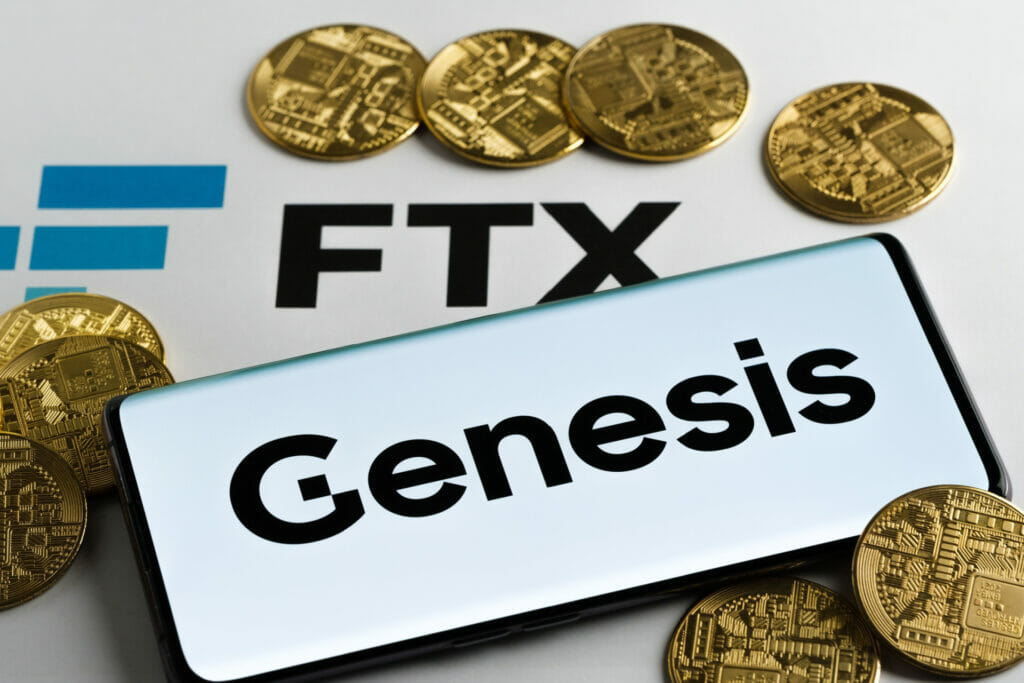What is common between FTX scandal and Kazakhstan

Last year was tough for the global cryptocurrency industry. A spate of scandals caused the industry to shrink threefold in terms of participants and plunged to $810 billion as of December 2022. There were some Kazakhstani traces in this cascade of events. Kursiv has taken a look at links that connected the country and Sam Bankman-Fried, founder of the collapsed crypto exchange.
The collapse of FTX – the world’s second-biggest cryptocurrency exchange – became a real shock for the entire industry. The FTX crisis was spurred by the default of Alameda, a company closely affiliated with Bankman-Fried. As a result, the exchange declared bankruptcy in November 2022.
It turned out that Bankman-Fried financed Alameda at the expense of the FTX clients. This news has immediately broken the trust of both international investors and regulators in the cryptocurrency industry.
Besides the FTX case, two other cryptocurrency businesses Celsius and Three Arrows Capital also declared bankruptcy. They did it before the FTX though. However, the collapse of FTX severely affected BlockFi – the company said it faced a liquidity crisis because of the FTX collapse. Later, big cryptocurrency broker Genesis Global Capital (which is not affiliated with Genesis Digital Assets) also went bankrupt.
«While we have made significant progress refining our business plans to remedy liquidity issues caused by the recent extraordinary challenges in our industry, including the default of Three Arrows Capital and the bankruptcy of FTX, an in-court restructuring presents the most effective avenue through which to preserve assets and create the best possible outcome for all Genesis stakeholders,» Genesis Interim CEO Derar Islim said in a statement on January 20, 2023.
Nevertheless, the vast majority of investors do not believe that this crypto winter is over. The bankruptcy of Genesis Global Capital made traders think that Digital Currency Group, the parent company for the latter, is also at risk of default. The company also owns Grayscale Investments, a digital currency asset manager and CoinDesk, a media company which first reported about wrongdoing within the FTX.
Bankman-Fried, who has been accused of deceiving investors, has several companies he liked most. Genesis Digital Assets, which received $1.1 billion of investments from Bankman-Fried, was one of these favorites, according to The Wall Street Journal. To get a better understanding of what happened, just think about this: the total amount of investments by the FTX founder in 150 other startups never exceeded $5 billion, WSJ data shows. This is why Genesis Digital Assets turned out to be one of the largest assets in the FTX bankruptcy.
The company was established in 2017 by Kazakhstanis Rashit Makhat (previously an independent director in Kcell, a mobile operator in Kazakhstan), Adbumalik Mirakhmedov and Andrey Kim, and two German citizens Marco Krohn and Marco Streng. Even though Genesis Digital Assets was registered in Cyprus, its core activity was based in Kazakhstan.
«We brought our expertise and they brought the technical know-how,» Abdumalik Mirakhmedov said in 2021.
In 2021, four years after the company was established, it sparked Bankman-Fried’s interest. He invested about $100 million into the company from Alameda. In October 2021, he even joined the board of Genesis Digital, according to the WSJ. In 2022, Alameda invested an additional $550 million in the company as Bankman-Fried wanted to buy stakes from Krohn (30%) and Makhat (70%). However, both men remain company shareholders, according to the WSJ. Later, Alameda directed another $500 million in newly issued shares. The goal of the investment was to expand Genesis Digital’s operations.
Genesis Digital had operated in Kazakhstan for a reason. As of mid-2021, the country accounted for a fifth of the global bitcoin mining. The capacity of this industry in Kazakhstan was about 280 megawatts, which is equivalent to the power consumption by roughly 100,000 households in the U.S.
Bitcoin miners liked Kazakhstan for its cheap electricity and Genesis Digital wasn’t an exception, although this company was much more profitable than others.
However, after the FTX collapse, Kazakhstan has turned away from the cryptocurrency industry while Genesis Digital has turned away from Kazakhstan. Most of its mining now takes place in the U.S., according to the WSJ. There is not much news about the company’s business in America, either good or bad. On the other hand, Kazakhstan’s government has cut off power to some miners and also increased the tariff on electricity for cryptocurrency miners by more than 20 times.
On February 6, President Kassym-Jomart Tokayev approved a law that allows miners to legally use electricity from the national power grid only if there is a surplus of energy in the system. Kazakhstan Electricity Grid Operating Company is going to provide access to the power grid system only for licensed mining operators. However, those miners whose operation relies on alternative sources of energy won’t be affected by the new legislation.
The law also implies that the government will approve lists of mining pools that businesses can use. in addition, cryptocurrency miners will be obliged to sell cryptocurrency through registered cryptocurrency exchanges in the Astana International Financial Center (AIFC). It is expected that about half of the miners’ assets will be sold through the exchange this year. In 2024, this rate must be at least 75%.
The new legislation is likely to ruin hopes to make Kazakhstan a global cryptocurrency hub. Many experts believed that Chinese miners would come to Kazakhstan after the Chinese government cracked down on bitcoin miners in the country. China has done this because President Xi Jinping wants his country to be a global leader in the fight against climate change, which is why China has been reducing coal consumption within the country.
Despite skepticism toward cryptocurrency mining in Kazakhstan and globally, the country’s mining industry still has growth potential. For example, in August 2022, Binance, the world’s largest crypto exchange, received its In-Principle Approval from the Astana Financial Services Authority (AFSA) to operate a Digital Asset Trading Facility and Provide Custody in the AIFC.
«Binance, with its wealth of experience, technologies and opportunities will contribute to the development of the digital assets market in Kazakhstan and is going to create a larger impetus for further establishing the country as the region’s cryptohub,» the AFSA said at the time.
In October 2022, Binance and the Financial Monitoring Agency of the Republic of Kazakhstan signed a Memorandum of Understanding (MoU). The two sides expressed their interest in the exchange of information and the safe development of virtual asset markets.
Also in October 2022, Binance announced that the BNB Chain was going to contribute to the digital currency (CBDC) created by the National Bank of Kazakhstan.
«Looking forward to NBK preparing CBDC use cases to see how they could be integrated into #BNB Chain to bridge the gap between traditional banking and the crypto ecosystem,» Binance CEO Changpeng Zhao wrote on Twitter.
In other words, Kazakhstan still has some plans to develop the cryptocurrency industry despite recent scandals and potential reputation risks associated with the FTX collapse.

